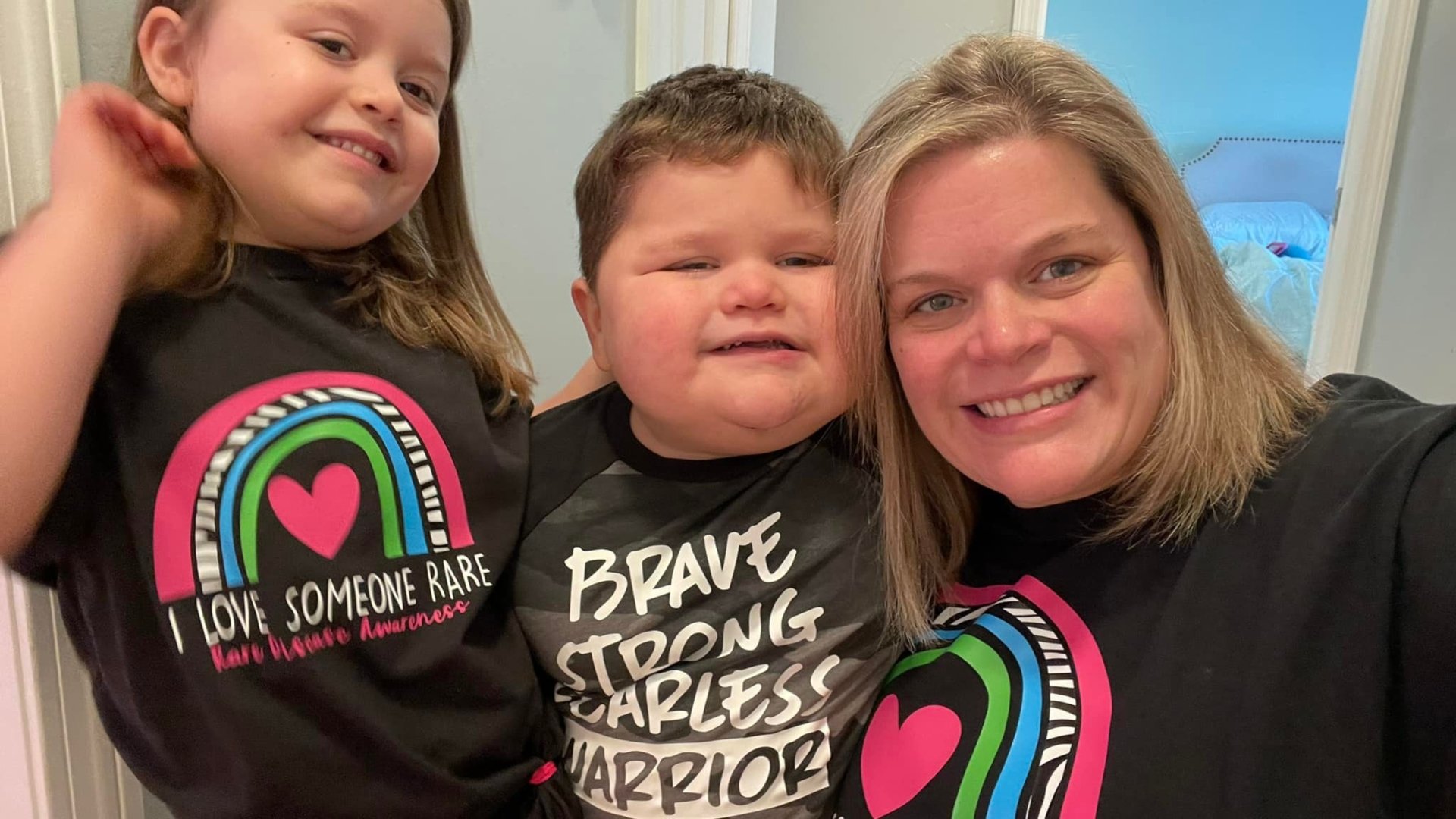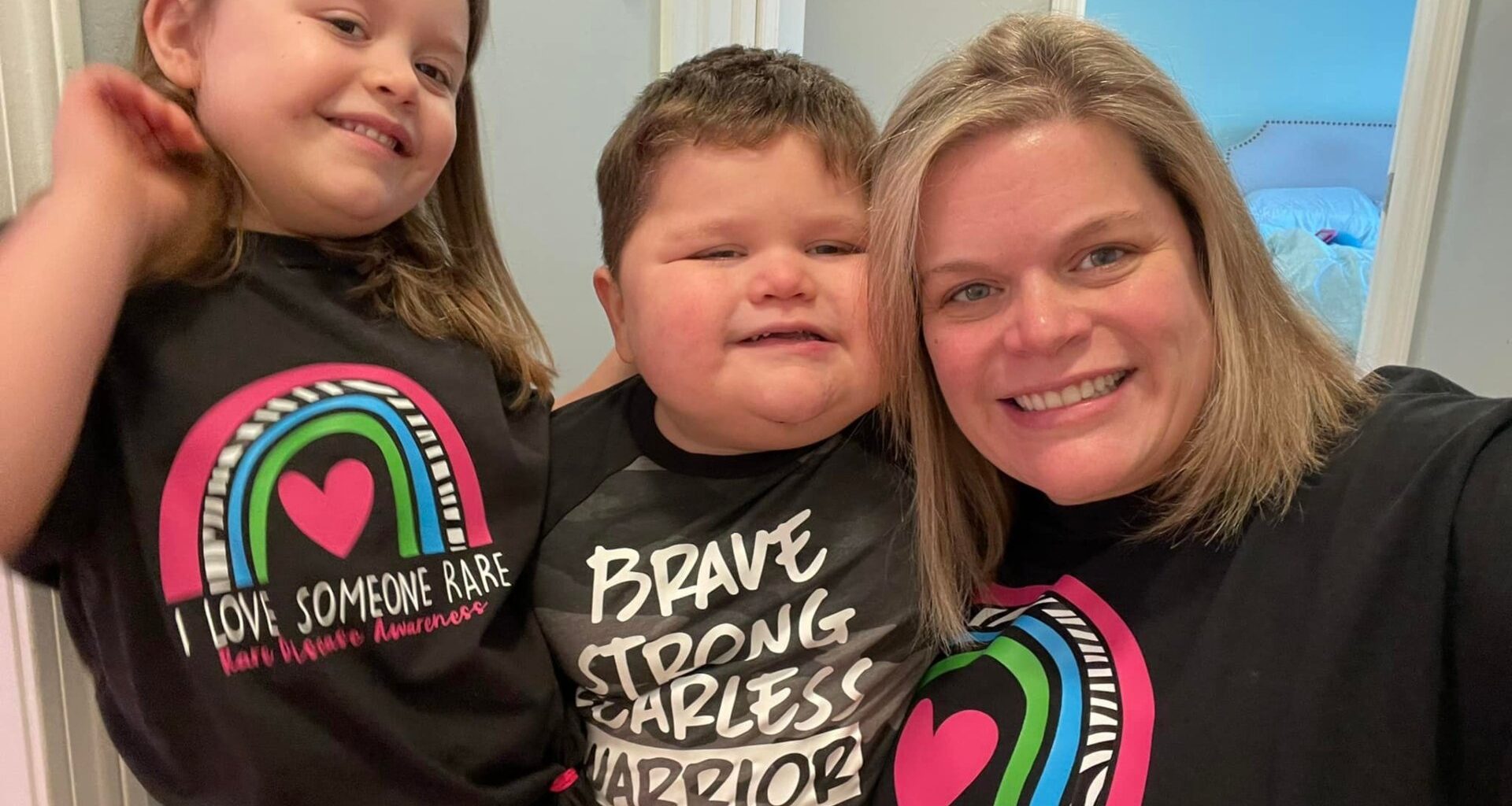
Karen Frietag/Facebook
People have a tendency to glance at a person out and about and make a snap judgment. They see a toddler throwing a tantrum and think, “Can’t that mother control her kid?” Or, say hello to a little boy who won’t respond and assume, “Didn’t his mother teach him any manners?” When in reality, that toddler having a tantrum was just exhausted and that “unfriendly boy” actually is nonverbal. The point being: People are fighting battles we often can’t see.
When people saw 3-year-old, 100-pound toddler Ben Frietag of North Attleborough, Massachusetts, they made a lot of assumptions. His parents, Jonathan and Karen Frietag, certainly felt the judgment. But the truth was, the family was desperately struggling with their little boy and his “bizarre” eating habits.
Ben was always hungry. He was so hungry in fact, that when his parents tried to do right by him and limit his intake, he’d sit by the pantry and sob.
“It was heartbreaking,” Karen Freitag, told People. “It was so hard watching him because you could just tell he was hungry, and he would just cry.”
By 2 years old, he weighed 65 pounds, by 3 he was at almost 100 pounds. It completely hindered his young life. He could not crawl, was too big for age-appropriate diapers, and generally lived in constant discomfort.
His parents set out on a quest to figure out exactly what was causing his insatiable hunger. After countless tests, bloodwork, and three endocrinologists, the doctors at Massachusetts General Hospital asked the family if they would be open to genetic testing related to obesity.
It was then doctors found Ben had a leptin deficiency, a hormone that regulates hunger. LEPR deficiency, which is a rare genetic condition, essentially “misfires” hunger cues, causing sufferers to be in a constant state of hunger.
“It essentially means that his brain thinks that his body is hungry,” Karen explained to the outlet. “So not only is it telling him he needs food and wants to eat, but it’s telling his body to retain the fat because his body thought it was starving. Regardless of whether we let him eat nonstop or didn’t let him eat, his body was going to retain the fat.”
Because the disease is so rare, there were not a lot of people who knew what to do to help him. A New York specialist at Columbia University, was working on a clinical trial of IMCIVREE for kids between 2 and 6 years old and offered to get Ben on the trial if the family was willing to make the drive. The medicine works to re-establish the hunger cues to make sure the body and brain are aligned.
“Once he got on the medicine, probably within a week, it was like he was a normal kid,” his mother claimed. “All of a sudden, all of the food noise was gone, and he would play and not ask for snacks. And if we didn’t eat lunch on time, he wasn’t looking for food. It was a total 360 from where he was at before.”
Now at 6 years old, Ben takes a daily injection and it has utterly changed his life. The little boy is super active, and while he is maintaining that almost 100-pound weight, he’s much taller and the weight is evenly distributed. Food and thoughts of food are no long the all-consuming problem they once were, much to the relief of his family.
*Disclaimer: The advice on LittleThings.com is not a substitute for consultation with a medical professional or treatment for a specific condition. You should not use this information to diagnose or treat a health problem without consulting a qualified professional. Please contact your health-care provider with questions and concerns.
